Lincolnshire man abseils UK’s tallest sculpture to support brain tumour charity
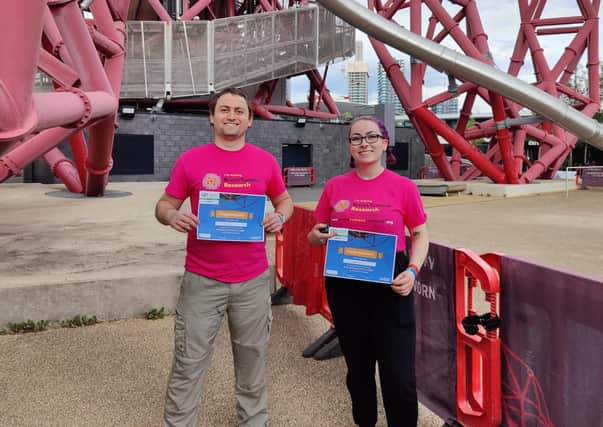

Boston’s Joshua Cullen took on the challenge of descending the ArcelorMittal tower in London to raise money for a charity which has helped him.
The 24 year-old, who received the devastating news he had an incurable brain tumour on Christmas Eve 2020, completed the feat recently alongside his sister Maria Cullen.
Advertisement
Hide AdAdvertisement
Hide AdThe siblings are working with the charity Brain Tumour Research to raise awareness of brain tumours which kill more children and adults under the age of 40 than any other cancer.
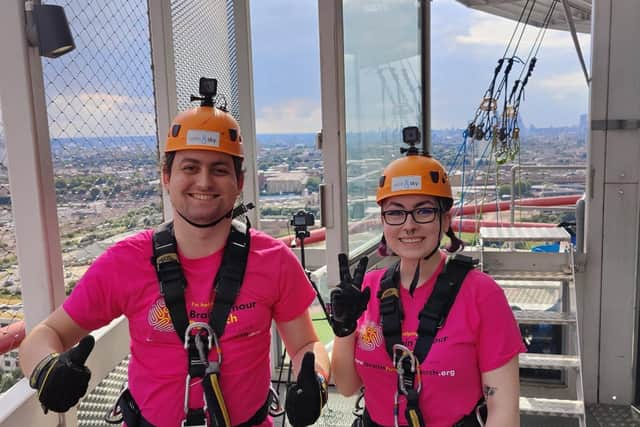

Joshua said: “I was really scared at first at the top of the tower but then I began to see how brilliant the view across London was. I loved it.”
Maria, 22, who has a fear of heights, said: “It was hard to focus on seeing the amazing view when I was trying to force myself down. There were moments where I looked down, but that was a bad idea. Josh really loved it. It was so good to see him so upbeat. Seeing him really enjoying it made me feel so happy.”
On December 21, Joshua was taken by ambulance to the Queens Medical Centre (QMC) in Nottingham after suffering a seizure at work. He had a CT scan and MRI scan before being discharged the next day.
Advertisement
Hide AdAdvertisement
Hide AdOn Christmas Eve, a neurology nurse called to tell him he had a primary brain tumour in his parietal lobe.
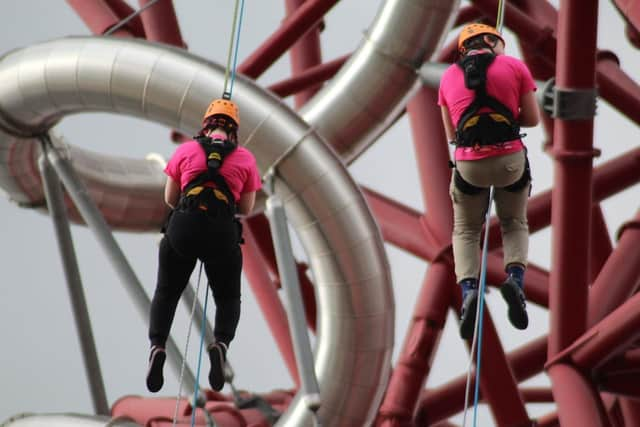

“I was in complete shock,” said Joshua. “My family came over to see me and we did our best to support one another and tried to enjoy Christmas, despite the terrible news I’d received.”
Joshua underwent a craniotomy to debulk the tumour in January. Surgeons managed to remove around 90% of the tumour. He was discharged a few days later and moved back in with his parents in Boston.
Joshua said: “On January 15, the nurse called to tell me that the histology report revealed I had a grade 4 (high-grade) glioblastoma multiforme (GBM). I did a bit of research and soon realised the stark statistics.”
Advertisement
Hide AdAdvertisement
Hide AdIn February, Joshua underwent a six-week course of radiotherapy and concurrent chemotherapy. A month later, he began Temozolomide (TMZ) chemotherapy which is taken in tablet-form.
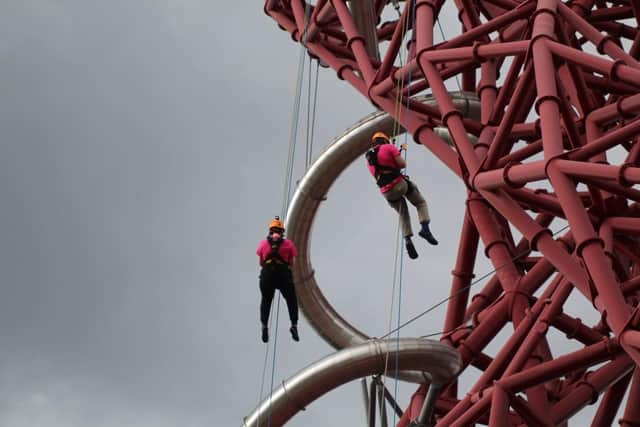

Joshua said: “Having a terminal cancer diagnosis is a distressing thing but you just have to make the best of it. I’ve had a couple of breakdowns when it’s really got to me, but other than that, there’s no point in being negative. I know it’s a terminal and I may only have weeks, months, or years, but I don’t want anything to be negative about this.”
Maria said: “It’s been hard seeing Josh go through all of this. He’s changed a lot, he looks different, but he’s still my brother. He’s just soldiered on throughout all of it.
“He doesn’t want to bring other people down and he’s always so lovely to everybody. He’s been so inspirational.”
Advertisement
Hide AdAdvertisement
Hide AdMatthew Price, community development manager at Brain Tumour Research said: “We are very grateful to Joshua and Maria for taking on this fundraising challenge.
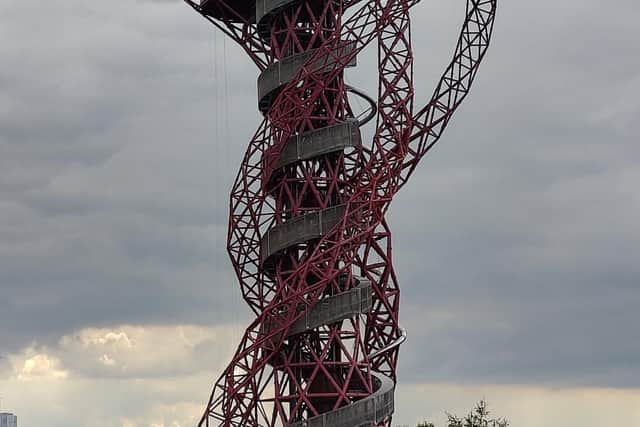

“Joshua’s powerful story reminds us that brains tumours are indiscriminate; they can affect anyone at any time. We are so grateful to him and Maria for supporting our cause. We remain focused on finding a cure, to help prevent more families from having their lives turned upside-down by this terrible disease.”
Brain Tumour Research funds sustainable research at dedicated centres in the UK. It also campaigns for the Government and the larger cancer charities to invest more in research into brain tumours in order to speed up new treatments for patients and, ultimately, to find a cure. The charity is calling for a national annual spend of £35 million in order to improve survival rates and patient outcomes in line with other cancers such as breast cancer and leukaemia and is also campaigning for greater repurposing of drugs.
To donate and support Joshua and Maria, visit www.justgiving.com/fundraising/CullenOrbitAbseil